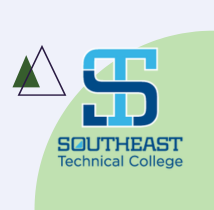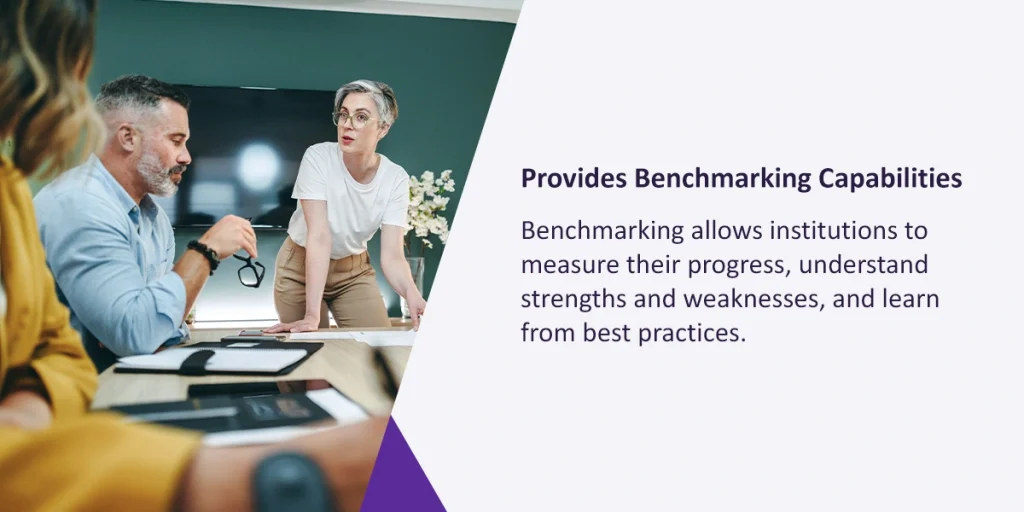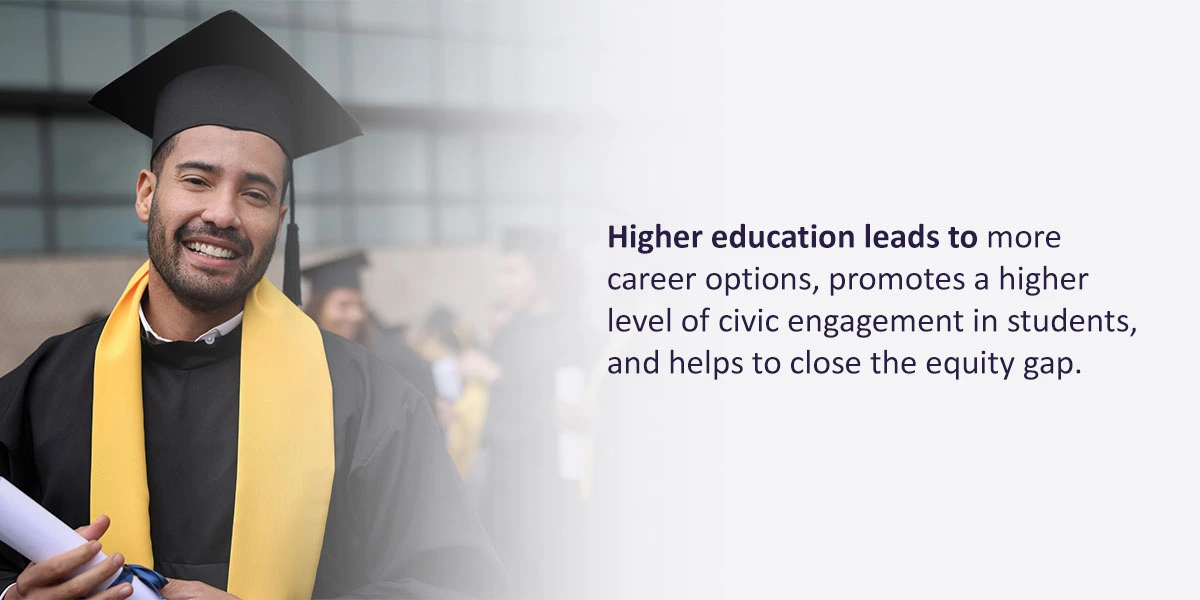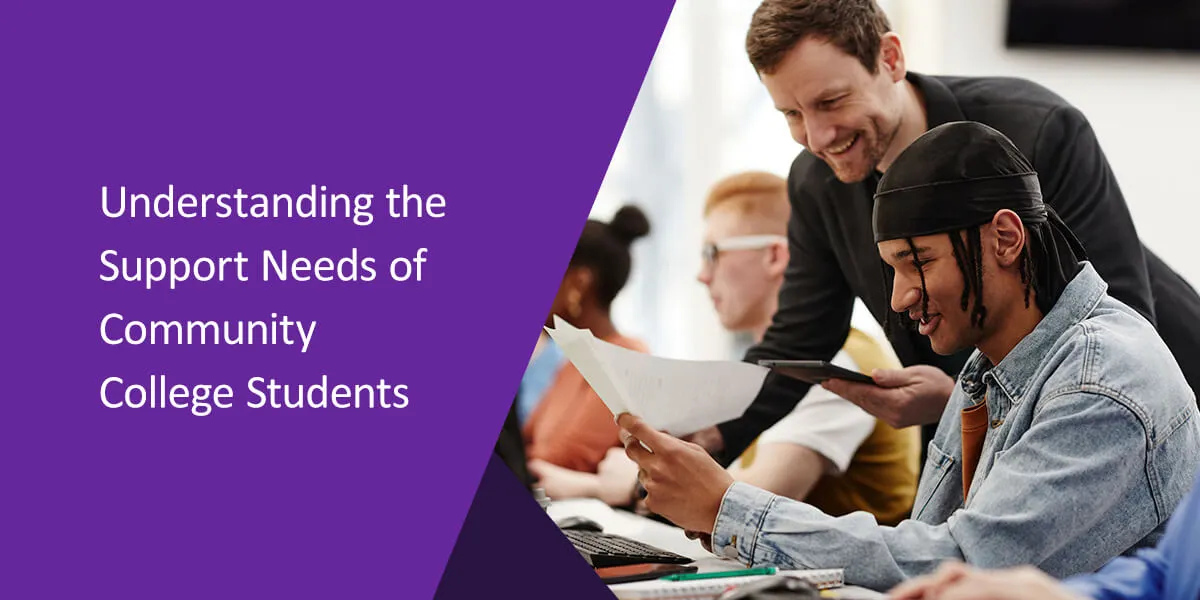




Open lines of communication on campus are essential for fostering a thriving educational environment. That’s why gathering course evaluations can improve course quality and empower students to share their thoughts with faculty. Moreover, higher education institutions can leverage the feedback from faculty and staff to drive institutional success.
With the right survey solution, you can seamlessly continue core processes like course evaluations, regardless of the circumstances. Additionally, there are seven ways a survey solution connects you with students and each other. Let’s explore these course evaluation benefits together.
Many institutions have historically used paper-based student evaluation of teaching (SET) systems to gather student and faculty feedback. However, these methods came with drawbacks, including high printing costs and potential data quality issues due to inaccurately filled-in fields. Moreover, manual processes were often required to ensure data accuracy, making them inefficient and impractical, especially when students couldn’t be physically present on campus.
Thankfully, with a digital survey solution, you can seamlessly administer surveys and course evaluations online, even where physical proximity to campus isn’t possible. This course survey benefits faculty and administrators by effectively connecting them with students and catering to student needs. Other benefits of a course evaluation include data accuracy by creating a simplified and repeatable course evaluation process, even for complex surveys. Additionally, switching to online surveys and course evaluations reduces paper costs and contributes to your institution’s image of being green.
Ensuring robust survey response rates is crucial for gathering sufficient data to inform decisions. Integrating your survey solution with your institution’s learning management system (LMS) allows students and faculty to complete surveys from anywhere and on any device — encouraging higher response rates and greater survey participation. With an online survey solution, you can reach students, faculty, and staff where they already spend much of their time — in your LMS. This becomes especially important when you don’t benefit from in-class reminders to encourage survey participation.
The benefits of a course evaluation are paramount. With a survey solution, a course evaluation should seamlessly integrate with your LMS so that those receiving a survey or completing a course evaluation can complete it directly in the LMS using the device of their choice. LMS integration allows you to provide timely reminders and prompts, tracking response rates in real-time to encourage active participation.
Survey results matter — and the sooner you receive them, the faster you can use the data to guide decision-making. Paper-based survey solutions, personal follow-ups, and manual reporting slow down the decision-making process, keeping you from maximizing the use of your data. However, with a digital survey solution, your institution can swiftly gather student feedback to enhance courses, use faculty evaluation data to connect with faculty, inform promotions and reviews, and evaluate teaching methods.
An effective online survey solution should offer fast and user-friendly reporting tailored to distinct roles and processes, so you can act on new information as quickly as needed. Be sure your course evaluation and survey solution:
When transitioning to an online survey solution, time is often of the essence. Implementing a new solution should be a swift and seamless process without placing excessive demands on your IT department. The last thing you want is a solution that stretches your resources thin.
The right survey solution empowers you to get up and running quickly — whether you administer student and faculty surveys at the end or in the middle of a term — enabling you to create surveys that effortlessly connect you with students, faculty, and staff. With a simple setup process, you can swiftly gather valuable insights and take action promptly to enhance your institution’s courses and foster a stronger sense of community.
One of the benefits of course surveys is that it protects privacy while keeping data secure. Maintaining the security and confidentiality of student and faculty data is paramount, especially when collecting feedback on sensitive topics like critiquing instructors. Anonymity in student surveys fosters a safe environment, encouraging honest and open sharing of thoughts and opinions.
Select a survey solution that prioritizes data security and offers robust privacy measures. Look for a solution that assures students, faculty, and others of their anonymity and safeguards their data. Role-based permissions should be available to:
A survey solution connects higher education administrators with students and offers valuable benchmarking capabilities. Administrators can compare survey results against internal or external benchmarks, gaining insights into their institution’s performance and identifying areas for improvement.

Benchmarking allows institutions to measure their progress, understand strengths and weaknesses, and learn from best practices. It provides a broader perspective and context for decision-making, enabling administrators to make informed choices based on comparative data.
By utilizing a survey solution, administrators can gather valuable data and insights that contribute to research efforts within the institution. Survey data is a rich source of information for studying student experiences, evaluating program effectiveness, and examining trends over time. This data supports evidence-based decision-making, informs strategic planning, and helps institutions stay responsive to the evolving needs of their students and stakeholders.
By leveraging a survey solution for institutional research, administrators and decision-makers can enhance their understanding of the institution. They achieve this by understanding student experiences, addressing concerns, engaging in dialogue, co-creating solutions, and adopting student-centered approaches. This drives continuous improvement initiatives and ensures the delivery of a high-quality educational experience.
Choosing the right survey solution is critical for collecting feedback, simplifying administration, and gathering the insights your institution needs to drive improvements. Watermark Course Evaluations & Surveys is the ideal solution for higher education institutions seeking to enhance their feedback collection and drive improvements.
With Watermark, you can seamlessly administer online student surveys and boost response rates while integrating with popular learning management systems. Our solution empowers administrators with easy reporting and provides students with accessible surveys. As a trusted provider with over 20 years of experience in the field, Watermark offers a comprehensive suite of functionality tailored to your institution’s needs.
Learn how other campuses use the digital solution and how Emory University moved from paper-based SETs to digital using Course Evaluations & Surveys.
Request a demo today to explore the benefits of Watermark’s course evaluation and institutional survey solution.






























































































































































































































































































































































































